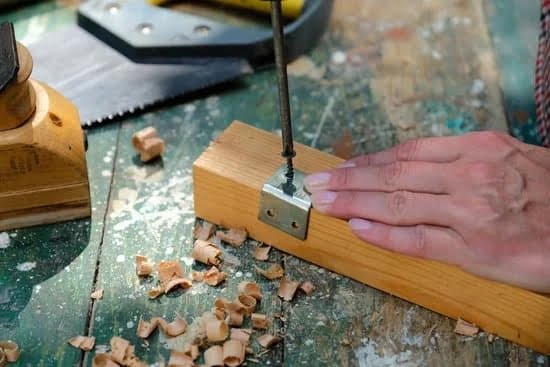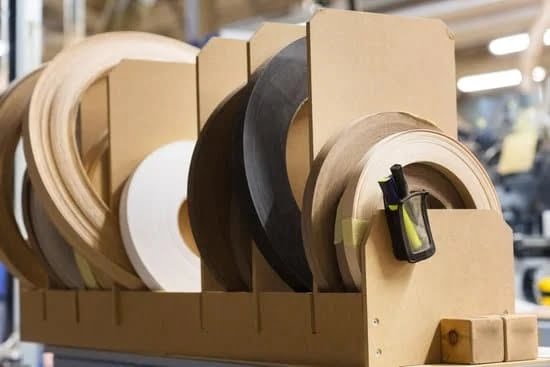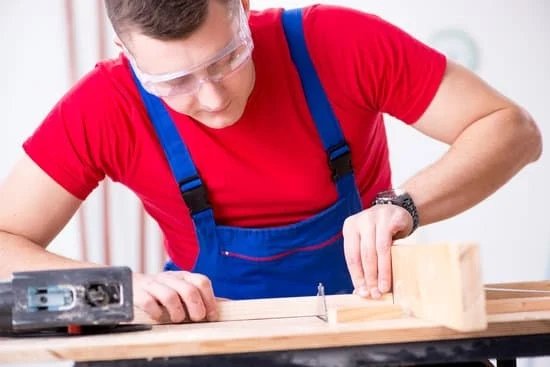Woodworking is a craft that requires skill, precision, and the right tools. Whether you are a professional or a hobbyist, having the must have woodworking tools is crucial for achieving excellent results. In this article, we will explore the essential tools that every woodworker should have in their arsenal. From power tools to hand tools, measuring and marking tools to safety equipment, we will cover everything you need to know to get started or enhance your woodworking projects.
Having the right tools is of utmost importance in woodworking. The right tool can make all the difference in creating clean cuts, smooth finishes, and precise joinery. Without the proper tools, woodworking becomes more challenging and may produce lackluster results. That’s why it is essential to invest in must-have woodworking tools.
In the upcoming sections of this article, we will delve into different categories of woodworking tools. We will discuss power tools like table saws and miter saws, hand tools such as chisels and planes, measuring and marking tools like tape measures and combination squares, safety equipment like safety glasses and dust masks, specialty tools like routers and band saws, as well as top brands and maintenance tips.
Whether you are a beginner woodworker just starting out or an experienced craftsman looking to expand your collection, this comprehensive guide will provide you with valuable insights into building your woodworking toolkit. So let’s dive in and discover the must-have woodworking tools that will help you achieve mastery in this timeless craft.
Essential Power Tools for Woodworking
When it comes to woodworking, having the right power tools is essential for achieving professional-level results. These tools not only make the process more efficient, but they also enable woodworkers to tackle a wide range of projects with precision and ease. Here are some of the must-have power tools every woodworker should consider adding to their collection:
- Table Saw: A table saw is often considered the centerpiece of any woodworking shop. It is incredibly versatile and can be used for a variety of cuts, including rip cuts, crosscuts, and miters. Whether you’re building cabinets or crafting intricate pieces of furniture, a good quality table saw is a must-have tool.
- Miter Saw: A miter saw is perfect for making accurate crosscuts at various angles. It features a rotating circular blade that allows you to make precise angled cuts, making it an excellent tool for creating picture frames, crown molding, and other fine woodworking projects.
- Power Drill: A power drill is a versatile tool that can handle a multitude of tasks in woodworking. From drilling holes for dowels or screws to creating pilot holes before driving in screws, a quality power drill is indispensable. Look for one with adjustable speed settings and interchangeable bits to cover all your drilling needs.
These power tools are just the tip of the iceberg when it comes to woodworking. Depending on your specific projects and preferences, you may find additional power tools like a router or band saw invaluable. Before purchasing any tool, do thorough research to ensure its compatibility with your projects and read customer reviews to gauge its performance.
Investing in high-quality power tools will not only increase your productivity but also enhance your overall woodworking experience. Quality tools tend to be more durable, reliable, and precise, resulting in better craftsmanship and more professional-looking projects. Remember to always prioritize safety when using power tools and follow proper operating instructions to prevent accidents. With the right power tools at your disposal, you’ll be well on your way to creating stunning woodworking projects.
Hand Tools Every Woodworker Should Own
In the world of woodworking, hand tools are an essential part of a woodworker’s arsenal. While power tools may offer efficiency and speed, hand tools provide precision and craftsmanship that cannot be replicated. Incorporating hand tools into your woodworking practice allows for greater control and attention to detail, resulting in beautiful and high-quality projects.
One of the most important hand tools every woodworker should own is a set of chisels. Chisels come in various sizes and shapes, allowing for intricate carving and shaping of wood. A sharp chisel can create clean cuts and smooth surfaces, making it an indispensable tool for any woodworking project.
Additionally, a quality set of hand saws is crucial for tasks such as crosscutting or cutting dovetails. Hand saws provide the ability to make accurate cuts by hand, giving woodworkers more control over their work.
Another must-have hand tool is a plane. Planes are used to smooth and flatten rough surfaces or shape joints with utmost precision. With different types of planes available, such as block planes and smoothing planes, there is versatility in their use depending on the requirements of your project. Using a plane provides the opportunity to refine your woodworking skills while achieving flawless results.
Hand tools also include other useful items like rasps, files, scrapers, and marking knives. These tools help with finishing touches, smoothing edges or surfaces, removing imperfections or excess material, and marking precise measurements or lines on the wood.
By incorporating these essential hand tools into your woodworking collection, you elevate your craftmanship to new heights. Each tool offers unique functionalities that contribute to the overall precision and quality of your projects. Whether you are a beginner or an experienced woodworker, investing in these hand tools will undoubtedly enhance your woodworking experience while allowing you to create beautiful pieces that stand the test of time.
Must Have Measuring and Marking Tools
Measuring and marking are crucial aspects of woodworking that require accuracy and precision. Having the right measuring and marking tools is essential for ensuring the quality and success of your woodworking projects. In this section, we will delve into the must-have measuring and marking tools that every woodworker should own.
One tool that is indispensable in woodworking is a tape measure. It allows you to take precise measurements of wood pieces, ensuring that they fit together perfectly. A tape measure with both imperial and metric markings provides versatility for different types of projects. Additionally, having a retractable tape measure with a locking mechanism allows you to easily mark and measure without the tape sliding back.
Another essential tool for accurate measurements is a combination square. A combination square consists of a ruler and an adjustable head that can be set at 90 degrees or as an angle guide. It is perfect for confirming right angles, checking surface flatness, and creating consistent angles on your wood pieces.
In addition to measuring, marking tools are also vital in woodworking. A marking gauge helps make precise marks along the edge of a workpiece, allowing for straight cuts or other desired measurements. It typically consists of a fence or headstock that holds a cutting blade or wheel used to score the wood surface accurately.
| Measuring Tool | Description | Function |
|---|---|---|
| Tape Measure | A flexible ruler with imperial and metric markings | Allows for accurate measurement of wood pieces |
| Combination Square | A ruler with an adjustable head set at 90 degrees or as an angle guide | Helps confirm right angles, check surface flatness, and create consistent angles on wood pieces |
| Marking Gauge | A tool with a fence or headstock that holds a cutting blade or wheel | Allows for precise marking along the edge of a workpiece |
Safety Tools
When engaging in woodworking, it is crucial to prioritize safety to protect both yourself and your workpiece. In this section, we will discuss the necessary safety tools every woodworker should have in their workshop. These tools are designed to prevent injuries and health hazards during woodworking projects.
One of the most basic safety tools that every woodworker should wear is safety glasses. Woodworking involves cutting, sanding, and shaping wood, which produces fine particles that can easily get into your eyes. Safety glasses provide essential eye protection by shielding your eyes from flying debris.
In addition to safety glasses, wearing a dust mask is vital when working with wood. Wood dust can cause respiratory issues like allergies and asthma when inhaled over a prolonged period. A quality dust mask filters out particles from the air, preventing them from entering your lungs.
Another important safety tool is hearing protection. Power tools used in woodworking can generate loud noises that can damage your hearing over time. Wearing earplugs or earmuffs while using power tools will help reduce the risk of hearing loss.
To ensure a safe working environment, it is also essential to protect the workpiece itself. One tool that helps with this is a bench dog or holdfast. These devices securely clamp down the workpiece onto the workbench, preventing it from moving during cutting or shaping operations.
Having fire extinguishing equipment readily available in the workshop is also crucial for preventing accidents from turning into disasters. A fire extinguisher rated for Class A, B, and C fires should be kept within reach at all times.
By investing in these safety tools and consistently practicing safe work habits, woodworkers can significantly reduce the risk of accidents or injuries while ensuring the quality of their workpieces.
| Safety Tools | Description |
|---|---|
| Safety Glasses | Shield the eyes from flying debris |
| Dust Mask | Protect against inhaling wood dust particles |
| Hearing Protection | Prevent hearing damage from loud power tools noise |
| Bench Dog/Holdfast | Securely clamp workpiece to prevent movement during operations |
| Fire Extinguisher | A class A, B, and C-rated extinguisher for immediate response to fires |
Specialty Tools
Specialty tools are the next level of woodworking equipment that can elevate your projects and expand your capabilities as a woodworker. These tools are specifically designed for certain tasks and offer unique functions that can enhance the quality and creativity of your woodworking projects. In this section, we will explore some must-have specialty tools that every serious woodworker should consider adding to their arsenal.
Router
A router is a versatile tool that allows woodworkers to shape, trim, and create intricate designs in wood. It features a motor with a spinning bit that can be used to hollow out grooves, create decorative edges, or even cut joinery such as dovetails.
Routers come in both handheld and table-mounted versions, offering different levels of precision and control. With various bits available, including straight, roundover, chamfer, and more, the possibilities are endless when it comes to what you can achieve with a router.
Band Saw
A band saw is an essential tool for cutting curves, resawing lumber into thinner pieces, making veneers, and even creating intricate scrolling work. It consists of a continuous band of toothed metal stretched between two or three wheels that rotate in an up-and-down motion.
The narrow blade allows for tight turns and precise cuts in various materials such as wood and plastic. With its versatility and ability to make intricate cuts, the band saw is considered indispensable by many woodworkers.
Biscuit Joiner
A biscuit joiner, also known as a plate joiner, is a tool used to create strong joints between two pieces of wood. It works by cutting an oval-shaped hole in the edge of each piece of the material using a small circular blade. A wooden biscuit (oval-shaped piece) is then glued into these slots before clamping the pieces together.
This method provides a reliable connection without visible nails or screws, making it ideal for joining boards, panels, and frames. The biscuit joiner is particularly useful for creating perfectly aligned joints in projects such as cabinets, tabletops, and chairs.
By adding these specialty tools to your collection, you can take your woodworking skills and projects to new heights. Each tool offers unique possibilities and opens up a range of creative opportunities. However, it’s important to note that mastering the use of these tools may require some practice and experimentation.
As always, remember to prioritize safety and proper usage techniques when working with specialty woodworking tools. With the right training and experience, these tools can become valuable assets in your woodworking journey.
Top Brands and Quality Tool Recommendations
When it comes to woodworking, investing in high-quality tools is essential for achieving the best results. The market is filled with numerous brands and options, making it overwhelming to choose the right tools for your woodworking projects. To help you make informed decisions and select tools that will last for years to come, here are some top brands and quality tool recommendations.
Dewalt
Dewalt is a well-known brand in the woodworking industry, offering a wide range of power tools that are known for their durability and performance. Their table saws, miter saws, and power drills are highly recommended by professionals and hobbyists alike. Dewalt tools are designed to handle heavy-duty tasks while providing accurate results.
Festool
Festool is another trusted brand that specializes in high-quality power tools for woodworking. They are known for their innovative features and precision engineering. Festool’s track saws, routers, and sanders have gained a reputation for delivering exceptional performance and unmatched versatility.
Stanley
Stanley has been a leader in hand tool manufacturing for centuries and continues to be a go-to brand for woodworkers worldwide. Their chisels, hand saws, and planes are renowned for their craftsmanship, ensuring precise cuts and smooth finishes. Stanley offers a wide range of sizes and styles to cater to different woodworking needs.
Starrett
When it comes to measuring and marking tools, Starrett is a brand that stands out. They produce high-quality tape measures, combination squares, and marking gauges that provide accurate measurements every time. Starrett’s tools are known for their durability and reliability, making them ideal choices for woodworkers who value precision.
Investing in quality tools from reputable brands not only ensures superior performance but also helps you save money in the long run as they tend to have a longer lifespan. It is essential to consider factors such as durability, functionality, and customer reviews when choosing woodworking tools. By opting for top brands and quality tools, you can build a collection that will serve you well throughout your woodworking journey.
Maintenance and Care for Your Woodworking Tools
Emphasizing the significance of proper maintenance
Maintaining and caring for your woodworking tools is crucial for ensuring their longevity and optimal performance. Proper maintenance not only extends the lifespan of your tools but also helps maintain their accuracy, functionality, and safety. By dedicating time to regular care, your woodworking tools will continue to deliver exceptional results project after project.
Detailing maintenance tips
- Cleaning: Regularly clean your woodworking tools to remove sawdust, debris, and other accumulated materials. Use a soft brush or compressed air to clean hard-to-reach areas. For sticky residue, use an appropriate solvent or cleaner recommended by the tool manufacturer.
- Lubrication: Apply lubricant to moving parts such as gears and bearings to reduce friction and ensure smooth operation. Consult the tool’s manual or manufacturer for specific lubricants and instructions.
- Blade sharpening: Sharp blades are essential for achieving clean cuts without putting excessive strain on the tool or workpiece. Invest in high-quality sharpening stones or systems specifically designed for different types of blades (e.g., table saw blades, chisels). Follow proper sharpening techniques and be cautious while working with sharp edges.
- Rust prevention: Keep rust at bay by protecting your tools from moisture and humidity. Wipe down metal surfaces with a dry cloth after each use and consider using rust inhibitors or rust-resistant coatings for added protection.
Providing suggestions on storage practices
Proper storage plays a significant role in maintaining the condition of your woodworking tools:
- Toolboxes and cabinets: Store hand tools in toolboxes equipped with padding or compartments to prevent damage from jostling during transportation or storage. Consider investing in sturdy cabinets with shelves or drawers to organize power tools securely.
- Wall-mounted organizers: Utilize wall space efficiently by installing racks, pegboards, or magnetic strips to keep frequently used tools within easy reach. This not only saves space but also protects against accidental damage caused by improper storage.
- Climate control: Extreme fluctuations in temperature and humidity can negatively impact the performance and lifespan of your woodworking tools. If possible, store tools in a climate-controlled environment or use dehumidifiers to minimize moisture.
Preventative measures
- Protecting cutting edges: Use protective covers or sheaths to guard the sharp edges of chisels, planes, and other cutting tools when they are not in use. This prevents accidental nicks or dulling.
- Regular inspections: Routinely inspect your woodworking tools for signs of wear, loose screws, or any other damage. Address issues promptly to prevent further damage and ensure safe operation.
By following these maintenance tips, practicing proper storage practices, and taking preventative measures, you can maximize the lifespan and performance of your woodworking tools and enjoy successful woodworking projects for years to come. Remember, a well-maintained tool is a reliable tool that will continue to deliver exceptional results.
Conclusion
In conclusion, having the right woodworking tools is essential for every woodworker. Throughout this article, we have discussed the various categories of must-have tools, including power tools, hand tools, measuring and marking tools, safety tools, specialty tools, and top-quality brand recommendations. Each of these tools serves a unique purpose in enhancing woodworking projects and ensuring precision and craftsmanship.
It is important for woodworkers to gradually build their collection of woodworking tools. Starting with the essential power tools such as a table saw, miter saw, and power drill can significantly improve efficiency and versatility in woodworking projects. Additionally, incorporating hand tools like chisels, hand saws, and planes allows for more intricate detailing and precision.
Accurate measuring and marking are crucial in woodworking, which is why investing in measuring and marking tools like a tape measure, combination square, and marking gauge is highly recommended. These tools contribute to the quality of final projects by ensuring precise measurements and markings.
Safety should always be a top priority when working with wood. Equipping oneself with necessary safety gear such as safety glasses, dust masks, and hearing protection helps prevent injuries and health hazards. Woodworkers should never compromise on safety precautions.
Finally, maintaining and caring for woodworking tools is paramount in prolonging their lifespan. Regular cleaning, lubrication, blade sharpening, proper storage practices are all essential maintenance tips that woodworkers should follow to keep their tools in top condition.
Frequently Asked Questions
What woodworking tools should I get first?
When starting out in woodworking, there are a few essential tools to consider getting first. A good quality set of chisels is a must-have as they can be used for shaping, carving, and detailing wood pieces. A quality claw hammer is also necessary for driving nails into the wood and general construction tasks.
Additionally, a versatile hand plane allows for smoothing rough surfaces and refining the thickness of wooden boards. A sturdy tape measure or ruler is important for accurate measurements, and finally, a reliable circular saw or jigsaw will be helpful for making straight cuts or intricate shapes in the wood.
What is the most important tool in a woodshop?
As every woodworker’s needs may differ, it’s challenging to identify one single most important tool in a woodshop. However, among the array of tools available, many would argue that a table saw holds significant importance.
With its ability to make precise rip cuts, crosscuts, and miter cuts with ease and accuracy, a table saw becomes the workhorse of any woodworking shop. Whether you’re building furniture or constructing intricate joinery, the versatility and power of a well-maintained table saw allow for efficient and accurate work.
What are some good woodworking tools?
There are numerous good woodworking tools available on the market today that cater to different aspects of woodworking projects. A versatile router is highly regarded as an essential tool in any woodshop due to its ability to shape edges, cut grooves and dadoes, create decorative effects, and even drill holes when fitted with appropriate attachments. A high-quality set of chisels is indispensable for anyone working with wood as it enables detailed carving work or making precise mortise and tenon joints.
For straighter cuts or large-scale projects like furniture construction, a dependable band saw can provide versatility and flexibility in cutting various materials beyond just wood itself. Furthermore, having a reliable random orbital sander allows for efficient sanding operations on different surfaces while minimizing swirl marks or scratches on finished pieces. These are just a few examples of good woodworking tools that can significantly enhance the quality and efficiency of your woodworking projects.

Hi everyone! I’m a woodworker and blogger, and this is my woodworking blog. In my blog, I share tips and tricks for woodworkers of all skill levels, as well as project ideas that you can try yourself.





